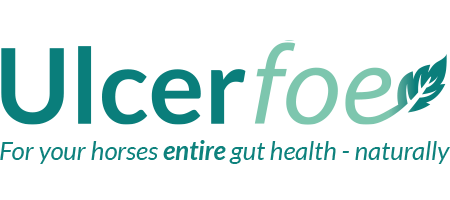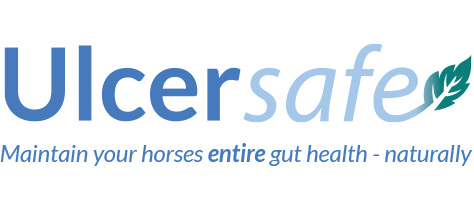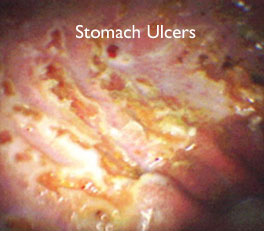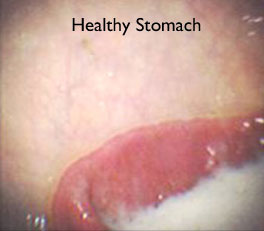Help Your Horse
Unfortunately for our horses, we’re only recently becoming aware of the prevalence of ulcers, so may have put weight-loss, poor attitude or performance problems down to a multitude of other reasons. We’d try more/different feed, re-worming, various supplements, bloods, physios, or worst case, the horse has ‘just always been grumpy” and do nothing about it, leaving our poor horse suffering.
No-one knows your horse better than you and as such he is totally reliant on you for his health, happiness and well-being through ongoing observation of his state of mind and physiology.
Ulcers are slow non-healing acid burns and now that we know of the pain and discomfort our horses suffer from we can take steps to heal and prevent further suffering.
Feeding
The longer the feed is in your horse’s mouth the better - chewing realises saliva, which contains high levels of bicarbonate and other alkaline buffers to neutralise the acid in the stomach. Horses that are fed high levels of concentrates and not enough fibre/roughage spend less time chewing and may eat too fast, which results in very little saliva production. Over time these high concentrate – fast food- diets with low fibre can lead to digestive dysfunction such as colic and stomach ulcers
- Don’t wet feeds (you’re not making a cake!) - unless your horse has a teeth/jaw problem - we want the horse to have to chew
- Add roughage/fibre to feeds - such as chaff, again to slow eating. When horses eat roughage they have to make more chewing movements than when they consume concentrates. Fibrous foods stimulate chewing and saliva production which can buffer acids in the stomach.
- Frequent feeds - the stomach releases one and a half litres of gastric acid every hour, 24/7, and if the gut is empty the acid will start to burn it and form ulcers
- Small feeds - the larger the feed, the less any of it gets digested properly and some may pass undigested into the hindgut and encourage fermentation and ulcers there. Feeding a large meal limits the mixing action of the stomach.
- Plenty of roughage - takes longer to digest, the gut stays fuller longer and the acid has something to work on
- Replace some hard-to-digest grain with oil - oil can make up to 10% of your horse’s feed
- Turnout grazing - trickle feeding - giving the acid something to work on.
Regime
- Company- your horse is a sociable, herd animal
- Turnout - more relaxing and therefore less stressful for your horse
- Less boredom - Be calm around your horse - if we’re stressed they mirror (and magnify!) our stress levels!
Exercise
- Feed a small amount of roughage before exercise to help prevent excess acid forming and splashing into the upper portion of the stomach
Observe observe observe - the longer your horse has ulcers the more he suffers, the harder it is to treat them and the longer it can take. Horse with ulcers are in pain. Horses can die from ulcers.
 UK visitors please click
UK visitors please click 




